By Drew Dietsch
| Printed
Hey y’all, Drew Dietsch right here for Large Freakin Robotic and we’re speaking about Star Trek once more.
However not simply any Star Trek. We’re gonna check out a Star Trek sequence that broke all the principles, was controversial with followers, received midway deserted by the studio, had tensions behind the scenes with its main actor, and ended up being the head of Star Trek storytelling.
Sure, it’s time to discover why Star Trek: Deep Space Nine failed.
Earlier than we are able to even step foot on the Promenade, we now have received to acknowledge and discuss Star Trek: The Subsequent Technology.
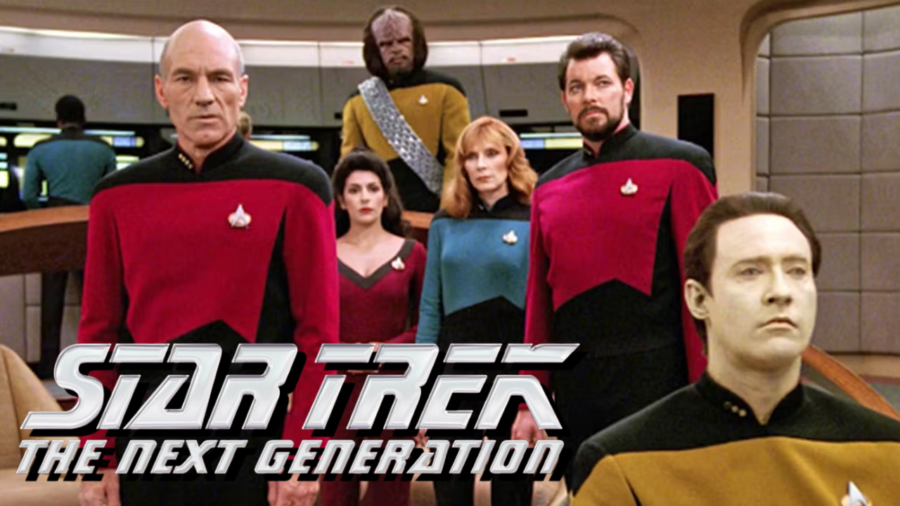
It’s exhausting to essentially perceive how a lot of successful Star Trek: The Subsequent Technology was in the event you weren’t round throughout its preliminary run.
Sure, most Trek followers have been over the moon when it got here to the brand new sequence, however I’m sorry, Trekkies alone didn’t flip that present right into a worldwide success.
Star Trek: The Subsequent Technology hit massive with mainstream audiences because it continued its tv run.
The present grew to become a focus in popular culture by the point the two-part episode “The Better of Each Worlds” got here round in Season Three, and the present’s high quality and affect would proceed to develop from there on out.
With the franchise now in full swing in the course of the ‘90s, Paramount needed to maintain the ball rolling and introduce yet one more new sequence in direction of the tip of Subsequent Technology’s run.
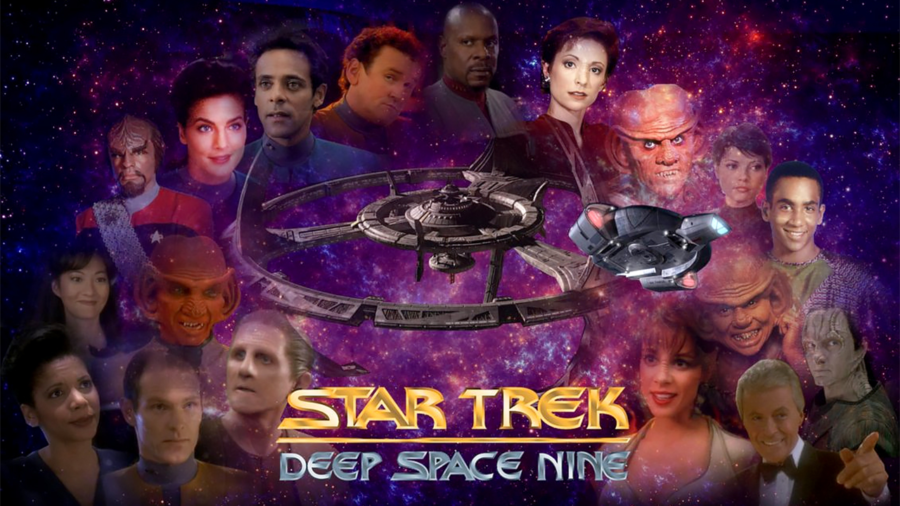
Star Trek: Deep Space Nine premiered on January 3, 1993, proper in the midst of Subsequent Technology’s sixth season, with a pilot episode that even included Patrick Stewart as Jean-Luc Picard.
And right here’s the place we get our first hurdle that stopped some Subsequent Technology viewers from even wanting to present the present an opportunity.
Star Trek: Deep Space Nine kicks off its story with the character of Benjamin Sisko, a Starfleet officer, shedding his spouse on the Battle of Wolf 359, an notorious battle led by Picard whereas he was assimilated by the Borg and have become Locutus.
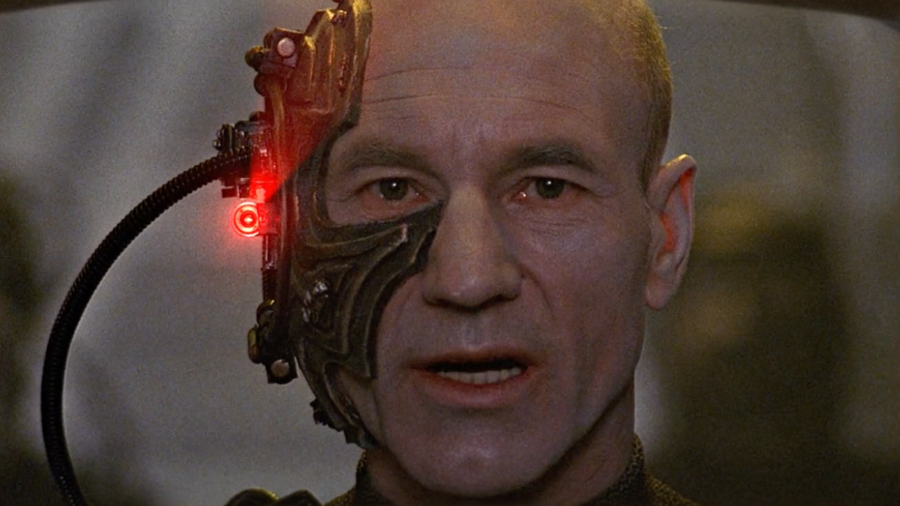
The present’s first episode has Sisko assembly with Picard and it’s instantly established that Sisko harbors resentment for Picard’s time as Locutus.
Sisko even mentions that he’s contemplating resigning from Starfleet within the first episode, organising the primary lead Star Trek character who may not really agree with the Federation.
Now, I all the time say a model of this as a security web for anything we’re about to discover within the video, so right here it goes: I like Deep Space Nine. I like Benjamin Sisko’s character. You’ll hear nothing unhealthy in regards to the man from me.
Nonetheless, there isn’t any query that followers had turn into extraordinarily endeared to each the character of Jean-Luc Picard and what he represented for Star Trek: The Subsequent Technology as a complete.
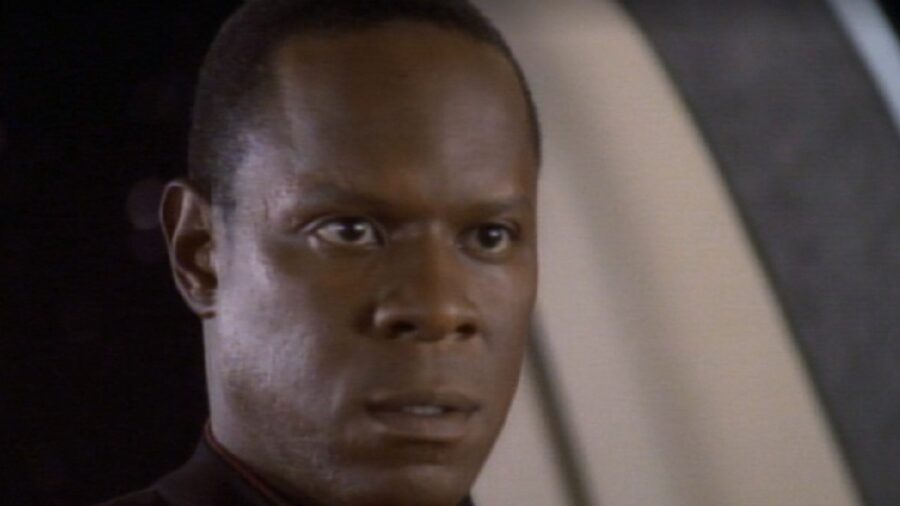
And right here was an offended Black man difficult that establishment proper out the gate in a brand new Star Trek sequence, and utilizing the fan-favorite captain of the favored present to do it.
We’ll concentrate on Avery Brooks himself in a bit, however it’s necessary to grasp that the character of Sisko encapsulated lots of Deep Space Nine’s narrative mission assertion: it’s time to see how a lot this Star Trek idealism holds up towards harder and morally complicated concepts and tales.
And although I’m certain there have been followers prepared to present Deep Space Nine’s adversarial tone a shot early on, there was a vocal contingent that made their unfavorable opinions identified.
There was undoubtedly reticence from each followers and mainstream viewers when it got here to embracing Deep Space Nine.
Right here was a Star Trek present that wasn’t about being in a spaceship and heading out to discover the galaxy.
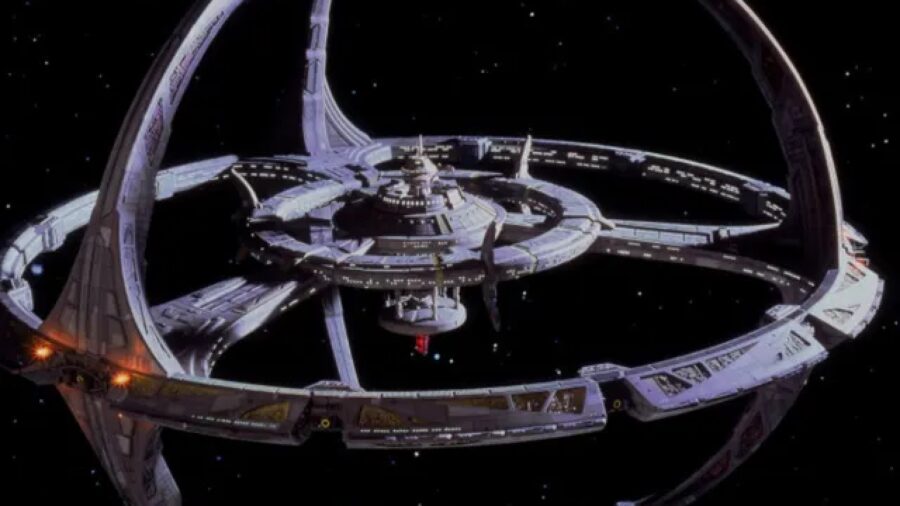
Set on a reclaimed Cardassian area station, Deep Space Nine made lots of related deliberate inventive decisions that rubbed up towards the familiarity of Star Trek.
As an alternative of a captain, Benjamin Sisko begins the sequence as a commander.
As an alternative of a forged of instantly lovable crewmembers, we get the surly changeling Odo and the righteously offended Kira Nerys.
And although Deep Space Nine actually has its heat and foolish aspect, it’s not just like the present deviated from its want to dig into darker material because it went on.
There’s no query that Deep Space Nine’s tone and temper turned a big contingent of viewers off.
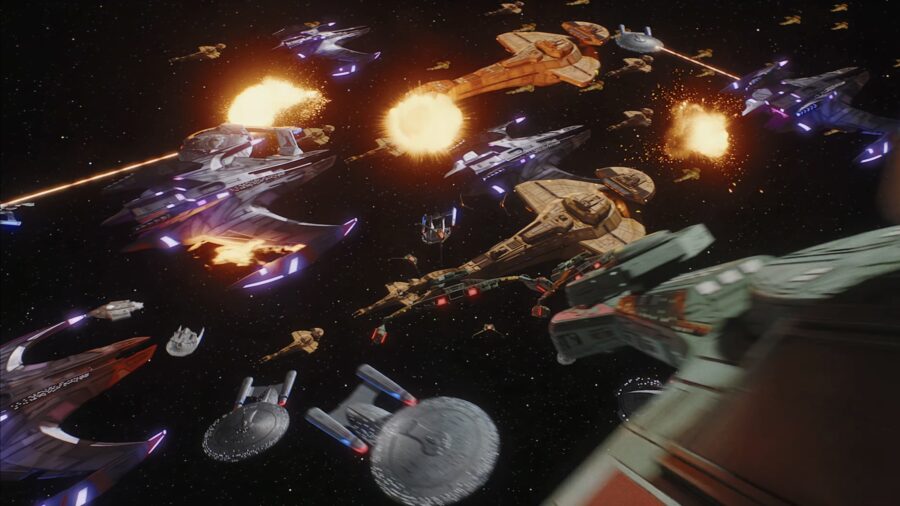
And because the present grew to become extra focused on multi-part episodes, recurring characters, and an overarching serialized storyline, it ended up turning extra viewers away who felt out of the loop with the present’s tales.
Resulting from Deep Space Nine operating in syndication, it meant that the present might play at varied instances throughout the nation and even in a unique order than meant.
For sure, for individuals who knew Star Trek as an episodic franchise that you possibly can simply pop into, Deep Space Nine didn’t precisely invite a recent viewers because it continued its run.
However there have been different elements hampering the potential of Deep Space Nine to interrupt out.
The gargantuan success of Star Trek: The Subsequent Technology ended up hurting Deep Space Nine in the long term.
The studio in contrast the scores of Subsequent Technology to Deep Space Nine and weren’t enthusiastic.
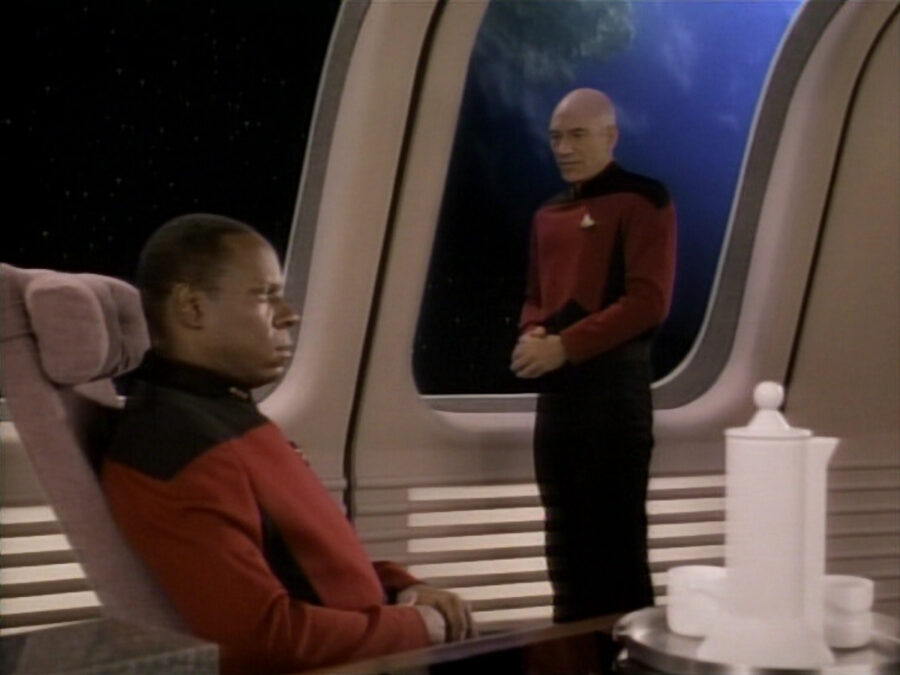
Although the present began robust coming off the again of Subsequent Technology, it shortly started to lose viewers and would steadily drop them all through the present’s seven seasons.
To spotlight this, the pilot episode of Deep Space Nine clocked over 18 million viewers whereas the sequence finale had 5 million viewers, lower than a 3rd of the preliminary viewers.
And a part of the blame for operating off viewers lands immediately on Paramount’s shoulders.
Simply two years after the premiere of Deep Space Nine, Paramount launched their very own community station, the United Paramount Community or UPN, and its premiere telecast was a brand new Star Trek present that might act because the community’s flagship program, Star Trek: Voyager.

As a result of Paramount had a bigger vested curiosity within the success of UPN and due to this fact Voyager, it meant that Deep Space Nine took a backseat to advertising and marketing and consciousness for the corporate.
Voyager additionally promised audiences one thing rather more historically Star Trek with a spaceship crew out within the galaxy, making it much more accessible and episodic for newer viewers.
In some ways, Star Trek: Voyager got here off as a response to Deep Space Nine within the eyes of followers and never a constructive one.
And all throughout this time, Paramount was additionally funding and selling Subsequent Technology characteristic movies.
Whereas it appeared like Deep Space Nine was simply one other functioning a part of this mega-franchise, the studio’s concentrate on optimizing the success of Voyager and the TNG motion pictures made the creators and filmmakers behind Deep Space Nine really feel like “the center baby” of Star Trek.
After which, there’s Avery Brooks.
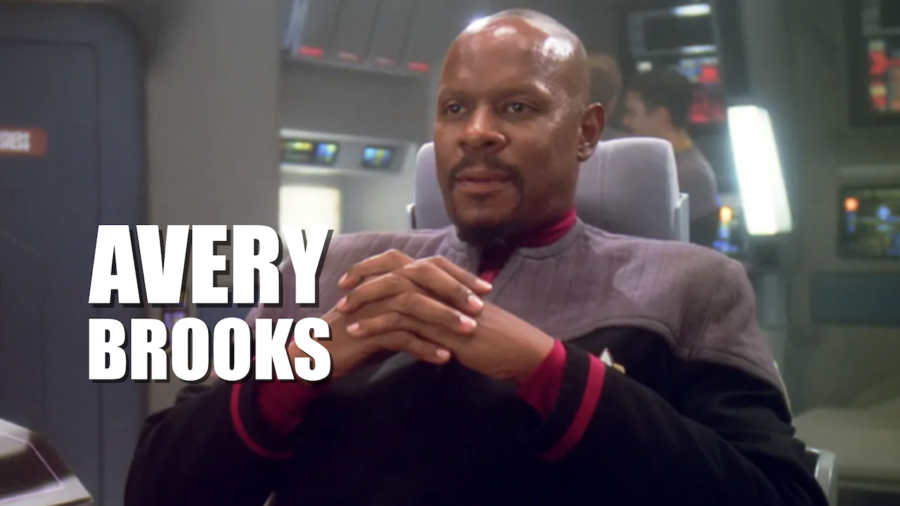
Let me reiterate: I like Deep Space Nine. I like Benjamin Sisko. And I like Avery Brooks’ efficiency throughout the sequence and as a director of a number of episodes, particularly “Far Past the Stars” which I did a complete video on that you need to watch. It’s the most effective factor Star Trek has ever executed.
However there isn’t any query that Avery Brooks because the sequence lead performed into why the present was not precisely beloved in its time.
Brooks is a very distinctive actor. On the time, he was greatest often called the character Hawk from Spenser: For Rent and was celebrated sufficient on that present to get his personal spinoff, A Man Referred to as Hawk.
Brooks felt very strongly about his look on tv as a Black man and needed to keep up his bald head and goatee.
However, producers vetoed this since their final Star Trek lead actor was a bald man and so they have been nervous individuals would simply see Brooks as his former character, Hawk.

So it took a number of seasons earlier than Brooks was allowed to adapt his most popular look into the character of Sisko.
Why are we bringing all this up? As a result of Brooks has acknowledged up to now that he needed to depart the present early in its run as a consequence of his many conflicted emotions throughout his employment.
Look, Star Trek followers like to consider themselves as extraordinarily progressive and open-minded, however there have all the time been poisonous, idiotic followers in each following and Star Trek is not any completely different.
Brooks undoubtedly handled racism from followers as the primary Black lead of the franchise, and there’s an excellent probability he skilled it behind the scenes as nicely.
And I’m sorry in case your rose-tinted glasses inform you in any other case, however a Black lead in a mainstream tv present within the ‘90s is one thing sure white audiences weren’t going to just accept.
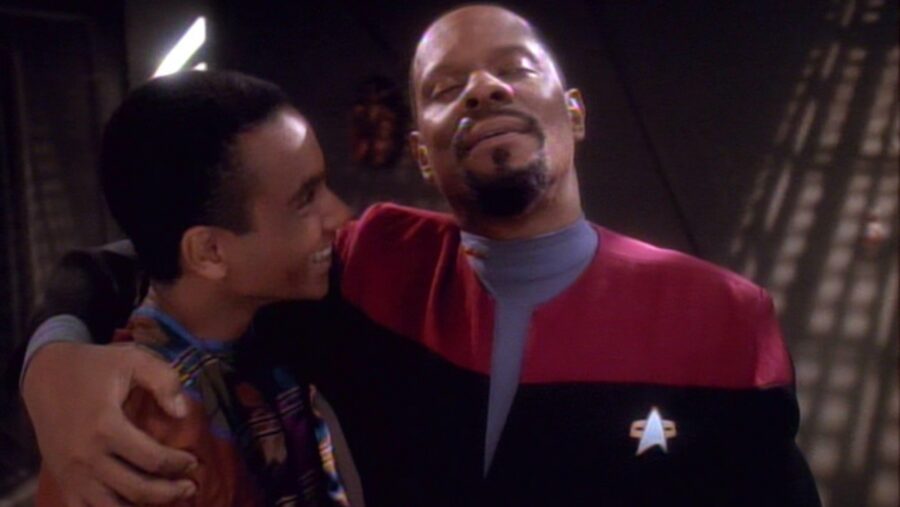
Deep Space Nine showcased plenty of Black characters and actors, and sometimes featured scenes with nobody on display however Black actors.
You may get as riled up as you need within the feedback about this, however it’s completely true {that a} part of the mainstream viewers merely didn’t wish to watch a Black man main the cost each week on their area present.
Fortunately, Deep Space Nine maintained a constructive vital response throughout its preliminary run, with reviewers on the time discovering the change of tempo for the franchise refreshing.
However, as Voyager stored discovering its manner by means of the Delta Quadrant and Picard was off swinging round like Tarzan on the massive display, Deep Space Nine performed out its story and concluded its seven season run on June 2, 1999.
And albeit, it sort of light out of dialog in lots of Trek circles since Voyager continued on and there have been nonetheless extra Subsequent Technology motion pictures occurring.
For some time, it felt like Deep Space Nine was destined to stay a distinct segment favourite for franchise followers.
Till, a brand new technology discovered the sequence by means of streaming.
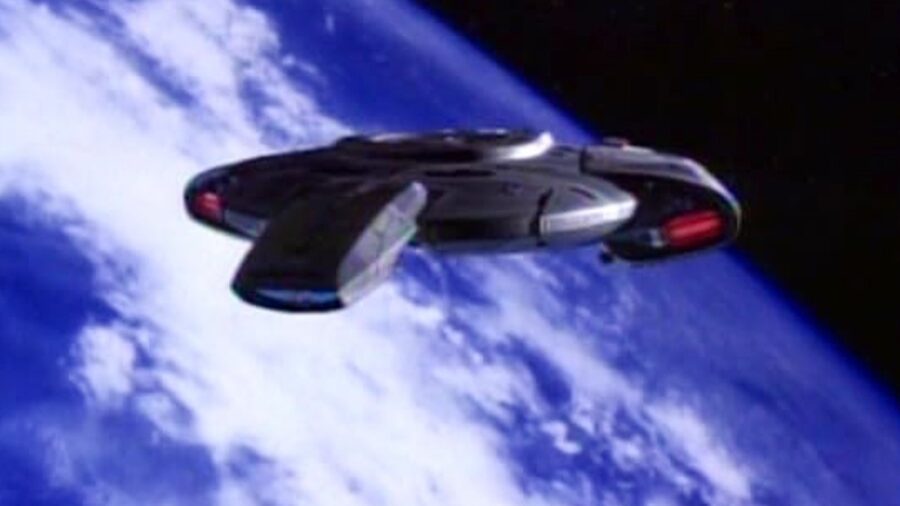
It’s right here that we begin to see the actual reevaluation of Deep Space Nine, each for followers of Star Trek and fashionable tv viewers.
Because of the binge mannequin of watching streaming reveals and a bigger cultural willingness for darker materials within the wake of reveals like Sport of Thrones, new viewers have been rather more prepared and in a position to settle in with Deep Space Nine’s longer tales and harsher tone.
These days, you will discover Star Trek followers like myself who proudly say Deep Space Nine is the most effective Star Trek sequence.
Belief me, that was not the case once I was rising up in the course of the peak of Star Trek’s reputation.
Star Trek: The Subsequent Technology is perhaps the general fan favourite, however in the case of mature storytelling, complicated characters, and endurance, Deep Space Nine takes the cake.
It’s just like the Andor of its day, besides that present exists in a market the place the viewers for a darker, extra combative exploration of its franchise is prepared and ready for these sorts of tales.
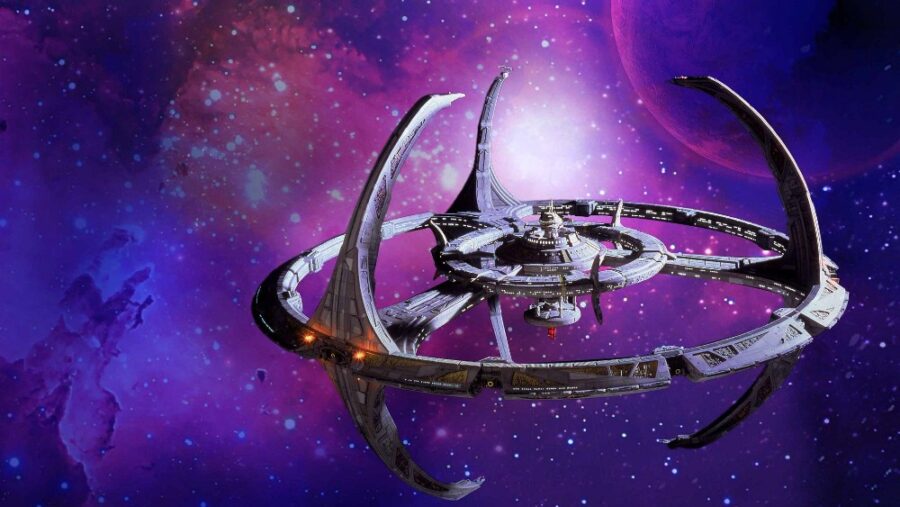
Deep Space Nine was actually forward of its time which is a giant purpose it nonetheless finds new followers.
It might have been seen as a failure on the time, however immediately, it’s proof that they haven’t managed to make any Star Trek pretty much as good as Deep Space Nine earlier than or since.







